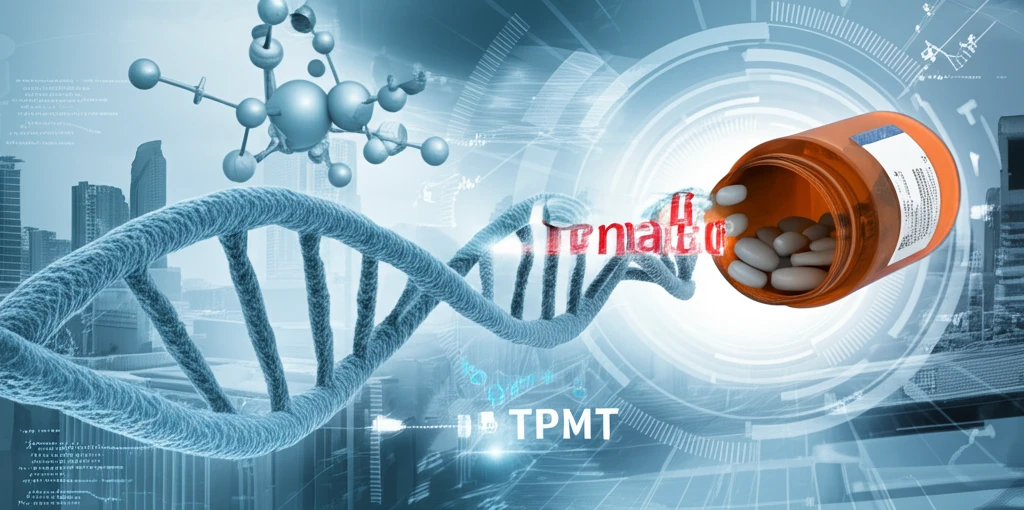
TPMT: Your Guide to Personalized Medicine with Thiopurine S-Methyltransferase
"Unlock the secrets of pharmacogenetics and learn how TPMT testing can optimize your treatment, reduce risks, and improve your health outcomes."
Our bodies are unique, and so is the way we react to medications. This is where pharmacogenetics comes in – a field that studies how our genes affect our response to drugs. By understanding these genetic variations, healthcare providers can better predict whether a medication will be effective and safe for you, paving the way for personalized medicine.
One significant area where pharmacogenetics is making a real difference is in treatments involving thiopurine drugs. These medications are used to treat a variety of conditions, from leukemia to inflammatory bowel disease. However, the way our bodies process these drugs can vary widely, leading to potential side effects for some.
That's where Thiopurine S-Methyltransferase (TPMT) comes in. TPMT is an enzyme that plays a crucial role in metabolizing thiopurine drugs. Genetic variations in the TPMT gene can affect how well this enzyme works, influencing how your body responds to these medications. By testing TPMT levels before starting treatment, healthcare providers can tailor the dosage to your specific needs, minimizing the risk of adverse reactions and optimizing the drug's effectiveness.
What is Thiopurine S-Methyltransferase (TPMT) and Why Does It Matter?

TPMT, or Thiopurine S-Methyltransferase, is an enzyme in your body that helps process certain medications called thiopurines. These drugs, including azathioprine, mercaptopurine, and thioguanine, are commonly used to treat various conditions, such as:
- Leukemia
- Crohn's disease
- Ulcerative colitis
- Rheumatoid arthritis
- Other autoimmune diseases
The Future of Personalized Medicine with TPMT
TPMT testing is a prime example of how personalized medicine can improve healthcare outcomes. By understanding your unique genetic makeup, healthcare providers can make more informed decisions about medication dosages and treatment plans, reducing the risk of adverse effects and optimizing the chances of success. As research continues to uncover more about the role of genetics in drug response, we can expect even more targeted and effective treatments in the future.
